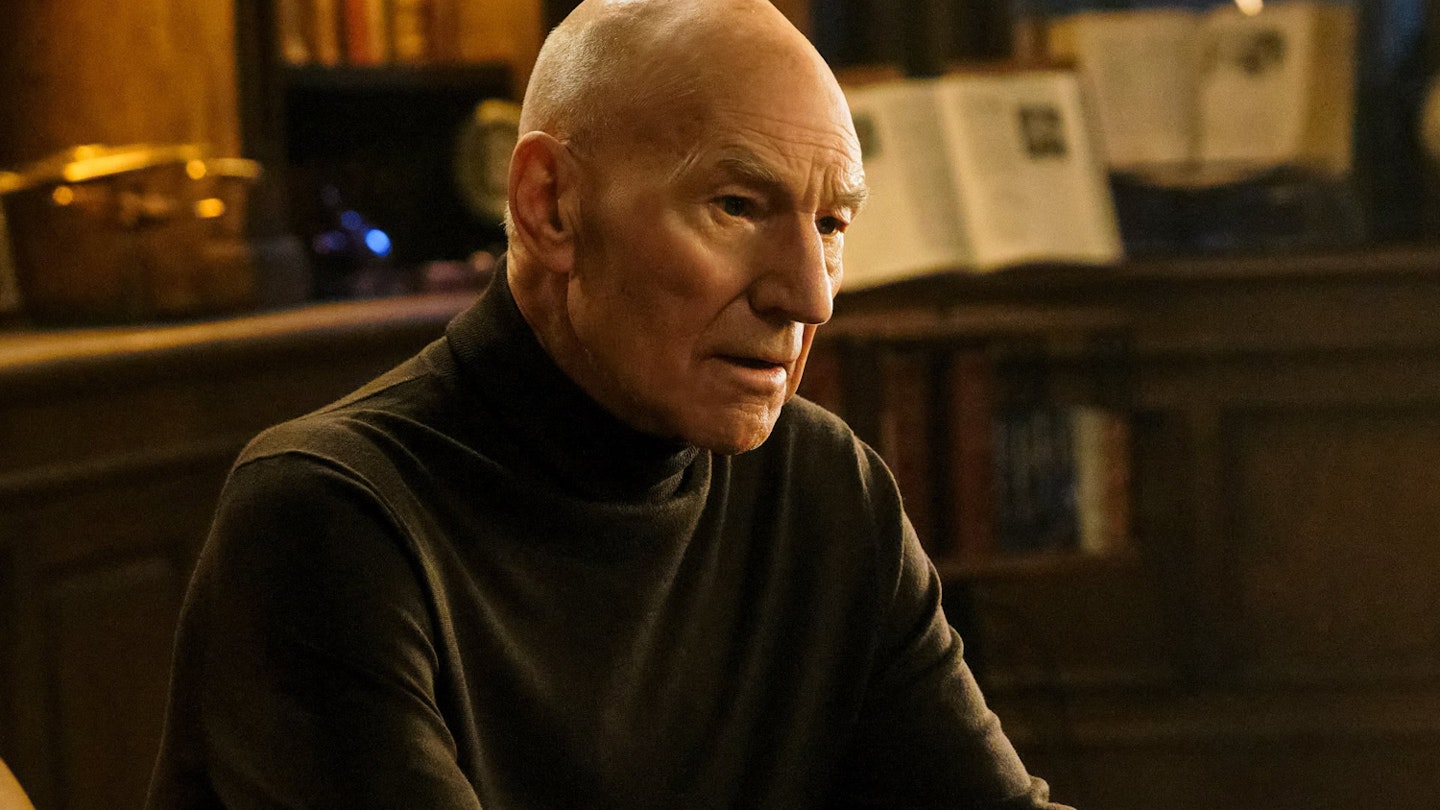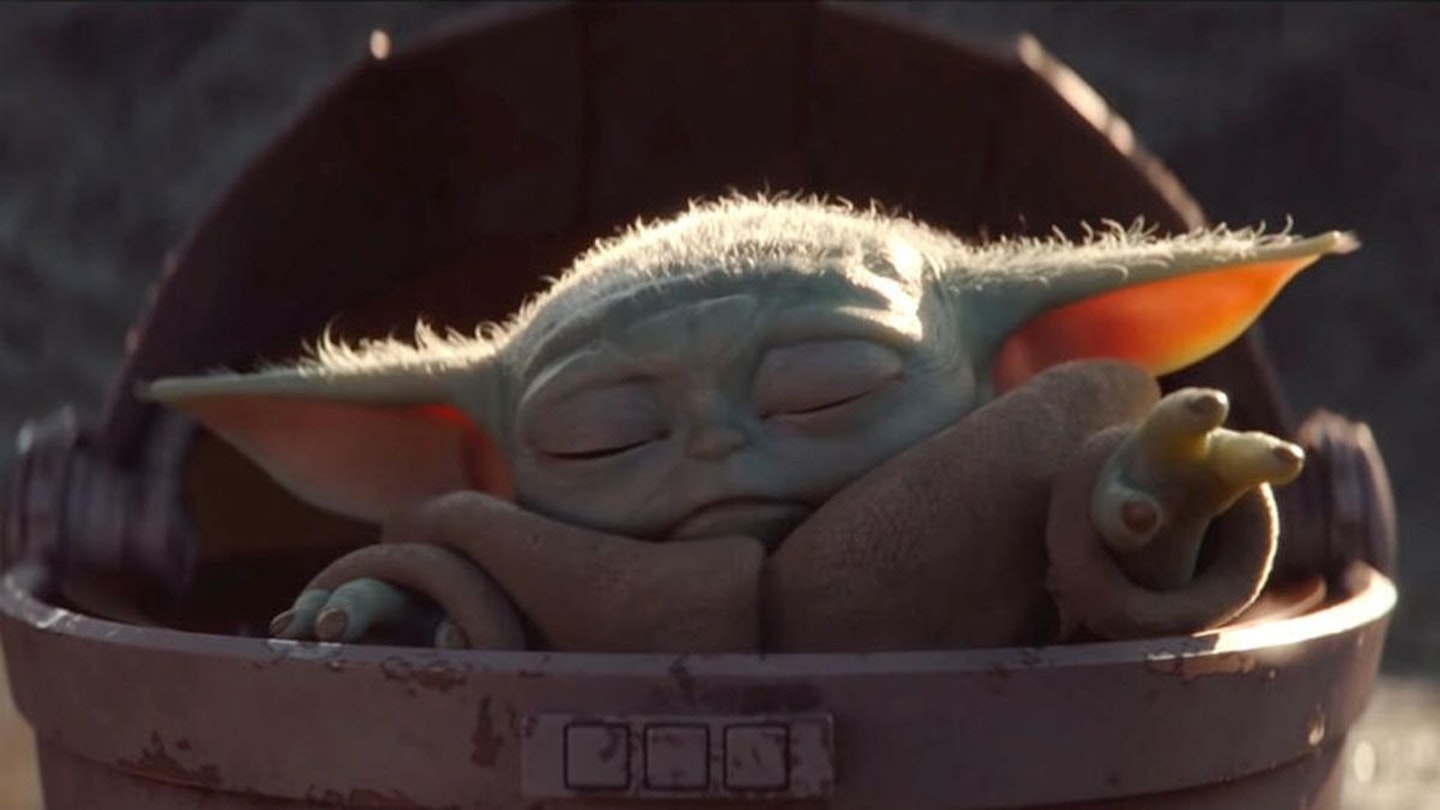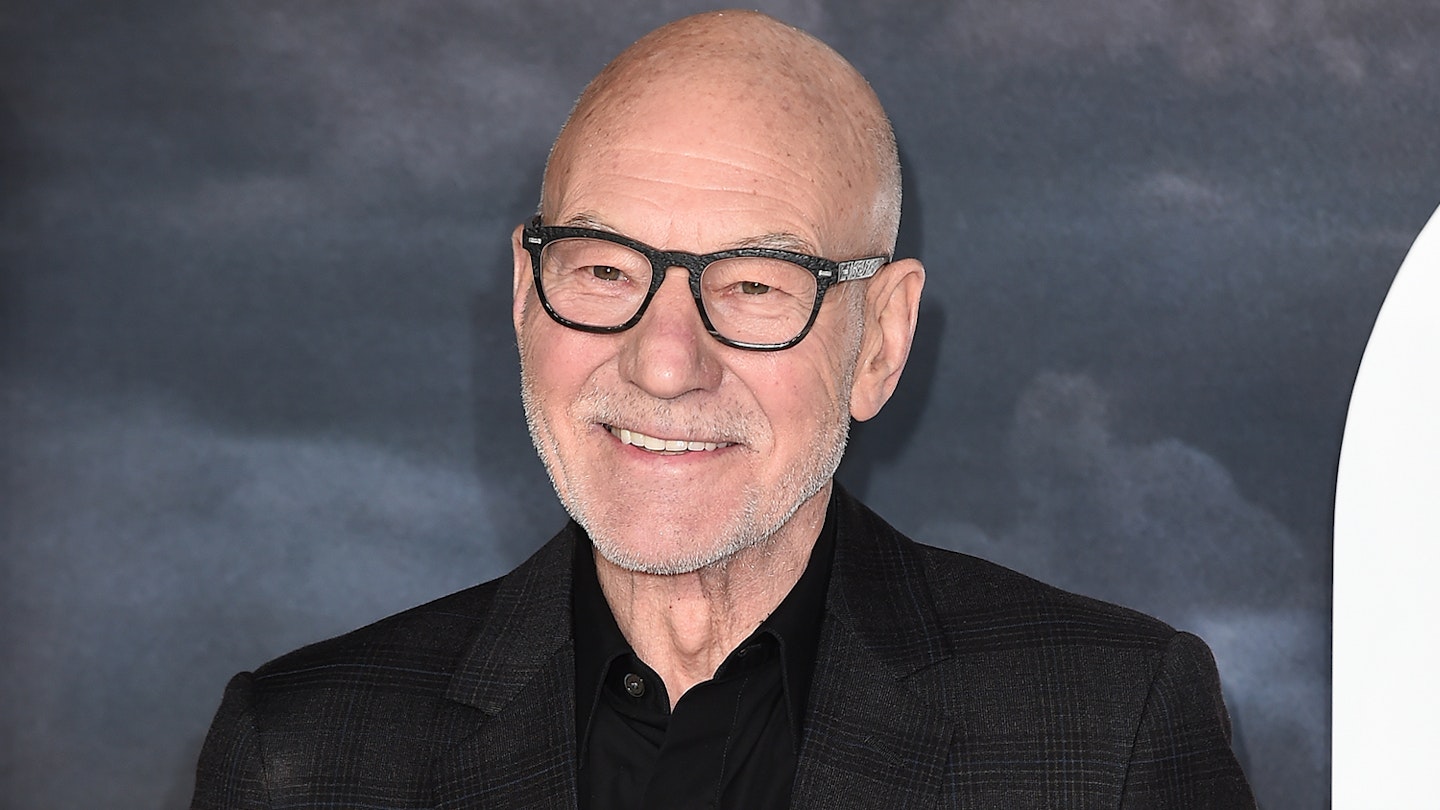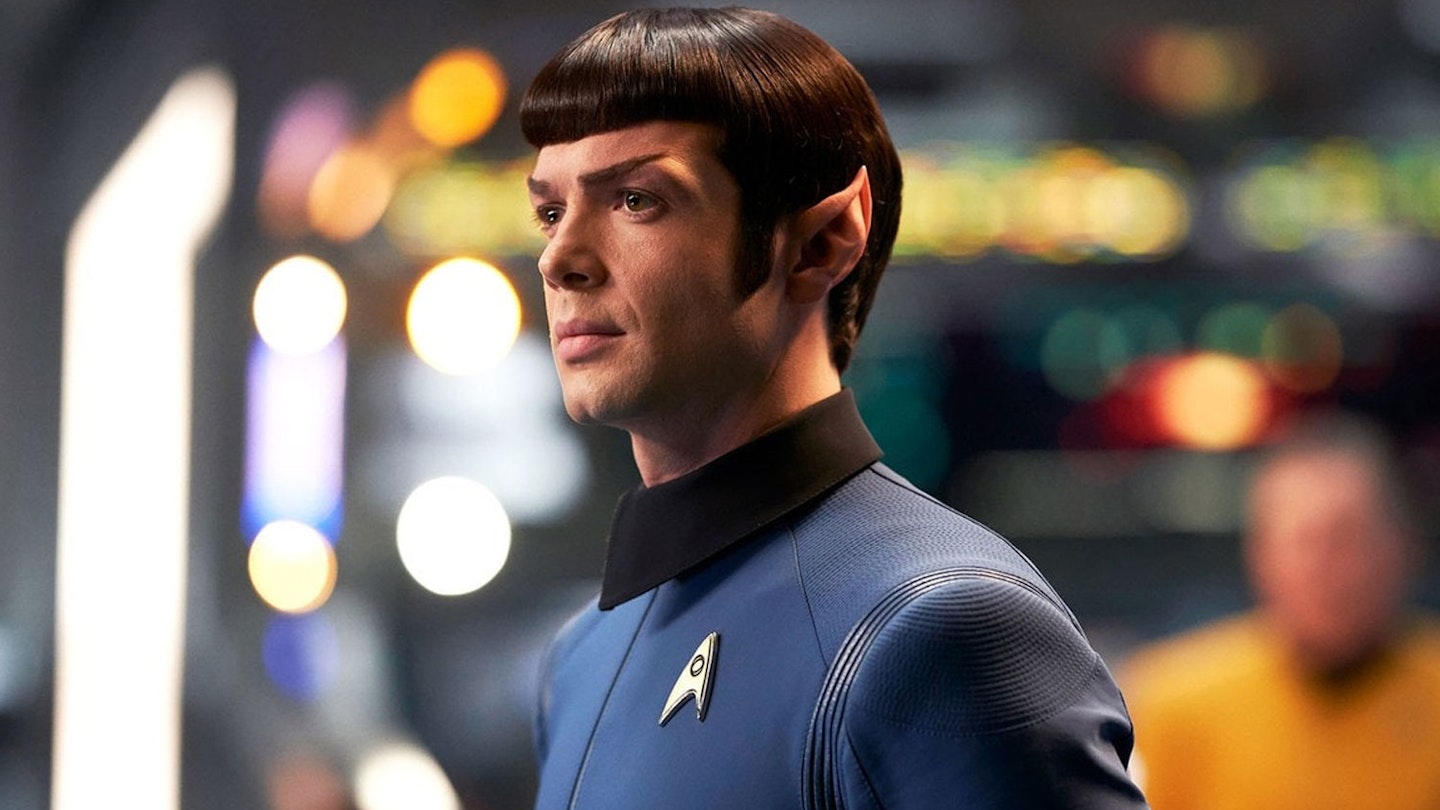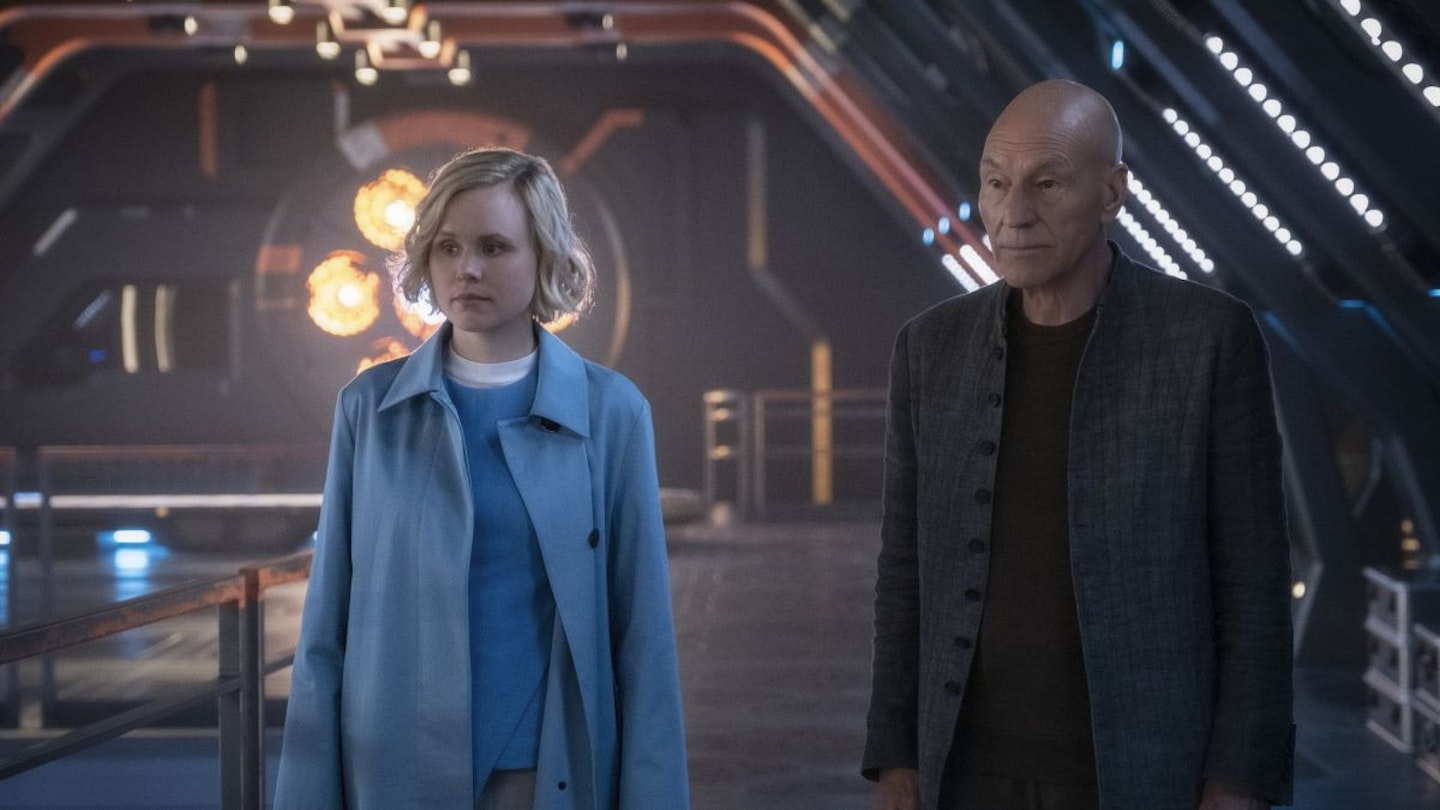Streaming on: Prime Video
Episodes viewed: 3 of 10
“Time is the fire in which we burn,” opined a pontificating Malcolm McDowell in Star Trek: Generations. Looking at Trek’s current output, McDowell’s maniacal Soren might well have been on to something. Of the franchise’s two current live-action shows, both have fallen back on temporal tomfoolery in an attempt to keep things interesting. For Discovery, it was catapulting the ship forward to the 32nd century, where old foes are now allies and starships reconfigure like fidgetsome Transformers — a format shake-up that has had the side-effect of distancing the show from its series heritage.
Picard, on the other hand, has taken the opposite route, not only in driving the time-travel highway back in the opposite direction, but using it to double down on the rampant nostalgia of the show’s first season. Year two brings us a story so packed with in-jokes and fan-service, you can barely navigate a scene without stubbing a toe on dropped names like Gul Dukat and General Martok, or paying a visit to former Enterprise barkeep Guinan (Whoopi Goldberg), now slinging cocktails at number 10, Forward Avenue. For franchise stalwarts, such constant hat-tips (or tunic-tugs) are a cockle-warming reminder of fond times past, but Season 2 showrunners Akiva Goldsman and Terry Matalas don’t stop there, instead pulling together a setup that feels less an original composition than a mix tape of Star Trek’s greatest hits.
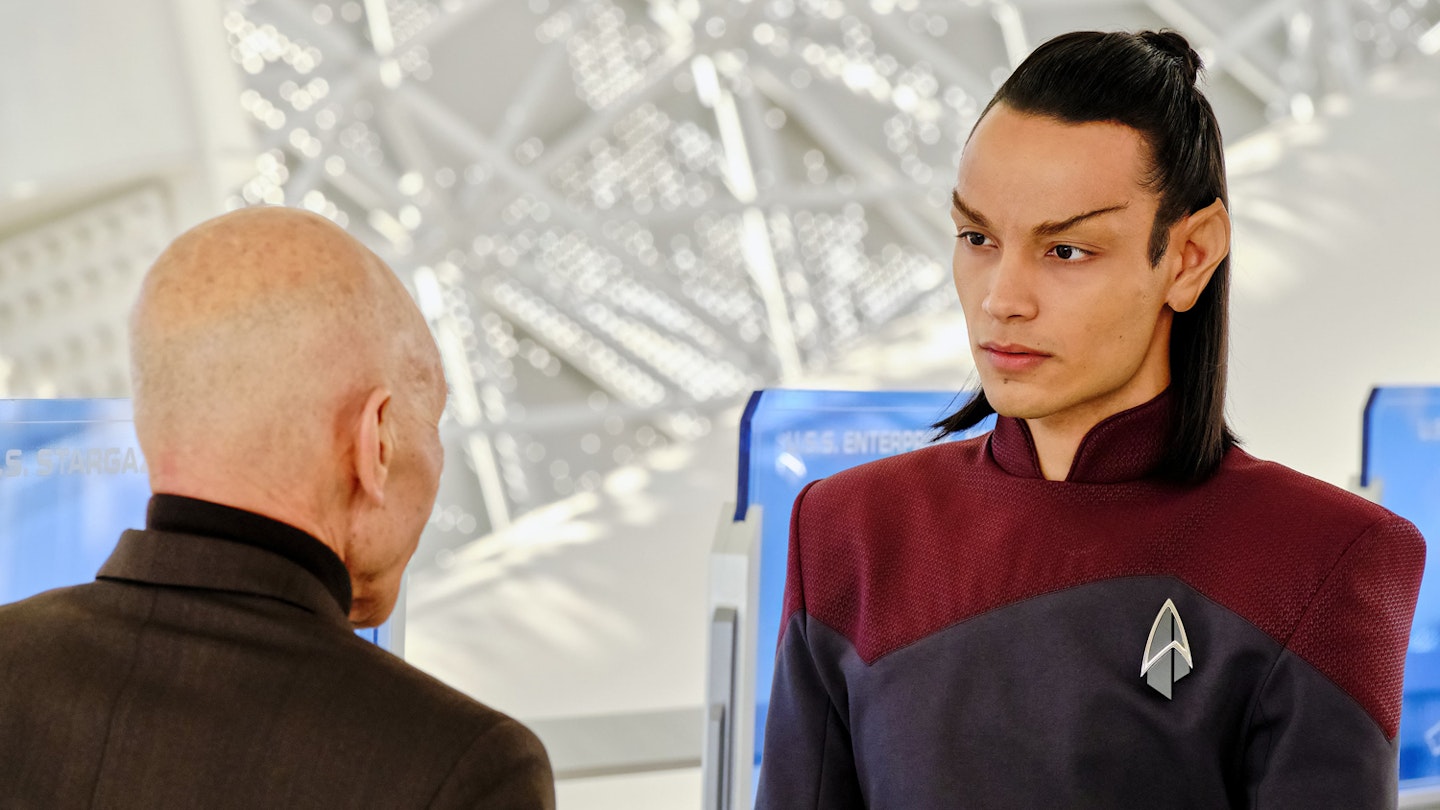
Picking up a year after the events of Season 1, we find Picard once again sequestered in bucolic bliss on the family vineyard, having been recommissioned as an Admiral and named chancellor of Starfleet Academy. He remains discontent, however, this time opining missed opportunities and loves lost to a career in service — drawn out by a rather awkward romantic brush with Romulan housekeeper Laris (Orla Brady). Starfleet’s recruitment office has been equally busy elsewhere, drafting almost every member of La Sirena’s crew into one role or another. Only Isa Briones’ Soji is passed over, the first season’s pivotal synthetic sidelined here to a brief appearance in the opening episode.
There’s a sense the show has slightly lost sight of _Star Trek_’s prime directive.
After the emergence of a spatial anomaly (naturally) draws Picard and co. back to the big black, we are confronted by the reemergence of perennial foe The Borg, swiftly followed by the return of Q (John de Lancie) and his tendency to toy with the rules of space-time for perverse amusement. In this case, Picard is re-cast as a battle-hardened general, now retired after decades of butchering civilians and subjugating alien species from the bridge of his ship, the World Razor, for the fascistic Confederation. It’s an odd approximation of the Terran Empire from Trek’s long-standing Mirror Universe episodes (brushes with which formed the spine of Discovery’s first season), though Picard take pains to highlight the differences — such as they are. And while watching Jean-Luc strut around in faux-SS regalia and barking orders at subordinates is undeniably fun, its overt familiarity makes the whole setup feel bone-achingly tired.
Thankfully, this Trumpian Trek is a mere pitstop on a larger journey, the crew shifting focus to yet another of the franchise’s well-worn tropes, slingshotting around a star and heading back to the present day in an attempt to iron out the wrinkled timeline and restore the status quo. Cue fish-out-of-water antics reminiscent of The Voyage Home, as Picard, along with Jurati (Alison Pill), Seven (Jeri Ryan), Raffi (Michelle Hurd) and Rios (Santiago Cabrera) attempt to fit in with the inhabitants of contemporary LA and put right what once went wrong.
As with Season 1, there’s much to enjoy. Each member of the crew continues to prove excellent company, each fleshed out and appealing in a way that so many of the Discovery crew are not. Stewart’s stately Admiral commands every scene he’s in, lending a certain dignified gravitas to even the daftest of situations, while Pill effortlessly inhabits her role as the show’s delightfully acerbic voice of comic relief. However, it’s hard to get away from the fact that the season (so far) is a rather awkward chimera of Star Treks IV and IX, with a healthy dose of Voyager’s ‘Future’s End’ two-parter thrown thrown into the mix. Picard is, by design, a trip down memory lane for both star and audience, but in focusing so heavily on reminiscence of things past, there’s a sense the show has slightly lost sight of Star Trek’s prime directive: to look to the stars.
